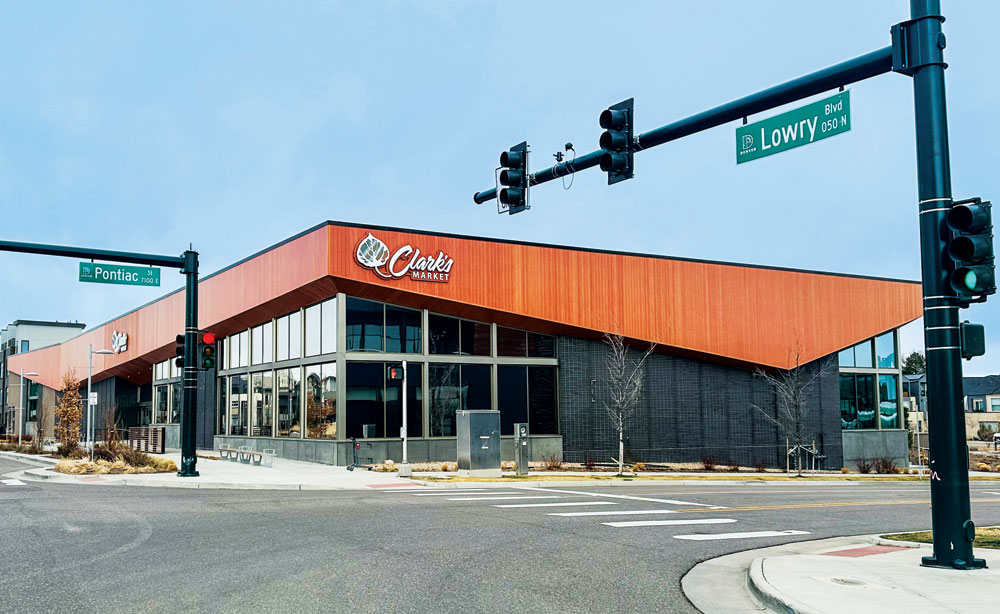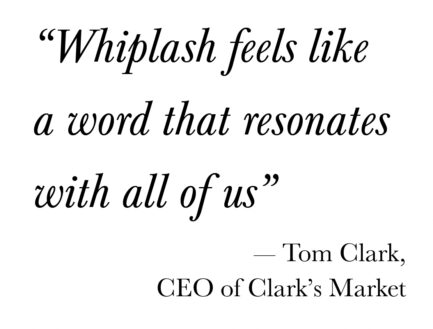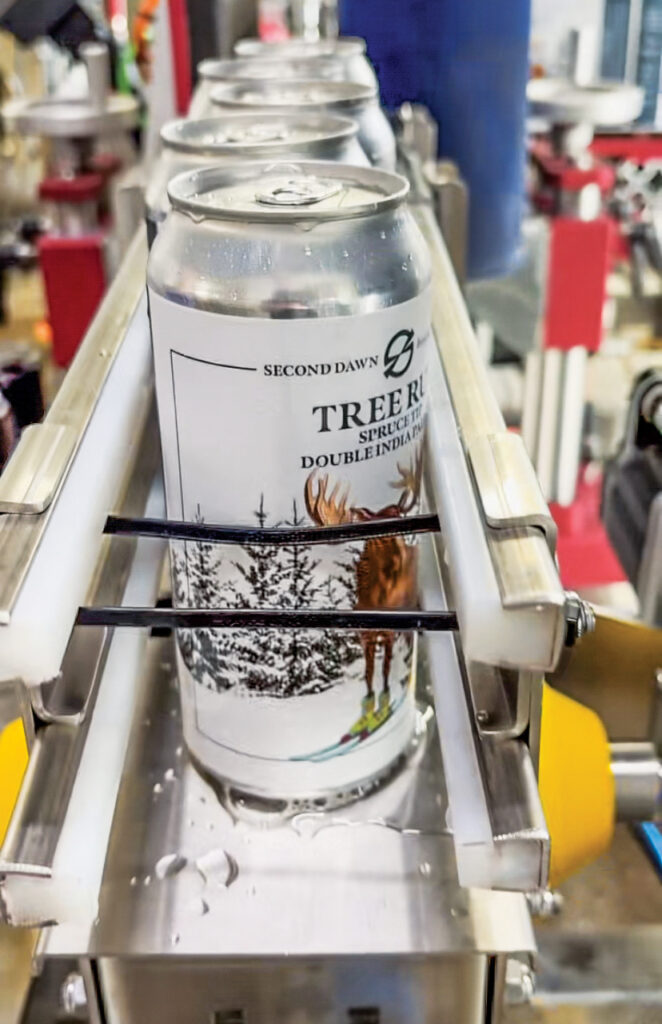
Grocery stores, like Clark’s Market in the Lowry neighborhood, are feeling the impact of tariffs. Front Porch photo by Christie Gosch
Whiplash is a word often used by local small business owners to describe what’s happening to them during the Trump administration’s timing and imposition of tariffs on imports from Canada, Mexico, China, and other nations.
Officials have given various explanations for the tariffs, including addressing the “emergency situation” of drugs being brought into the country, countering trade imbalances, and spurring U.S. industry.
The decisions at the White House are having an impact on the U.S. supply chain that runs through businesses in northeast Denver and northwest Aurora
Tom Clark, CEO of Clark’s Market, says there’s no doubt businesses across the country are feeling the impacts of uncertainty and indecision at the federal level. Clark leads a chain of stores in Arizona, Utah, and Colorado, including a market in Denver’s Lowry neighborhood.
“Whiplash feels like a word that resonates with all of us. From our perspective, these challenges are reason for us to double down on the things we can do to mitigate price increases and to be transparent and communicative with our customers when things do change,” Clark says.
He adds it’s difficult to provide a consistent and predictable experience for customers when trade imbalances create inconsistent and unpredictable pricing and supply chain challenges for retailers. He’s working to find domestic and local vendors for his stores, from produce to meat to ice cream to grocery items.
Clark has already seen prices for items like canned soda and sparkling water go up because of an increase in the cost of aluminum, and he doesn’t see relief from overall rising prices for at least the next 12 to 18 months.
“We anticipate price increases on products we source from countries where tariffs are imposed and where the supply chain is impacted. It’s too early to tell exactly what those items and prices will be, but we’ll follow the market as we always do. When supplier prices increase, our prices have to increase. When supplier prices decrease, our prices decrease.”

The aluminum canning process at Second Dawn Brewing in northwest Aurora. Courtesy of Second Dawn Brewing
Ross and Amy Koenigs, owners of Second Dawn Brewing, recently started a canning operation at their northwest Aurora location, so the cost of aluminum is top of mind along with the cost of making beer.
“As a small-business owner, everybody’s getting squeezed more and more,” Ross says.
Local breweries rely on malting barley from Canada, the largest grower of the product in the world, and those prices were already up from pre-Covid days. “Slapping another 25% on there all of a sudden, that’s a huge extra cost for us,” Ross says.
He says businesses need stability to help create a financial plan for the year, so the Koenigs can know how and where to allocate funds. “The more immediate sense is our pricing structure. Is it accurate and good for what we need to meet our financial plan?”
They say that if they could find the materials they need entirely through the U.S. supply chain, the costs would be significantly more expensive and those costs would likely need to be passed on to consumers, something they don’t want to do. “You’d probably have to pay 30% to 40% more for your pint of beer or your four pack, just to be able to make all of our financials make sense,” Ross adds.
Inside Stanley Marketplace in northwest Aurora, Cheluna Brewing owners Javi and Jennifer Pérez say they’re also working to keep costs from being passed on to customers and are doing everything they can to avoid purchasing anything under a tariff that costs them more money.
“We work hard to keep our prices fair to pay our bills and our staff, and have a small margin without being one of the more luxurious brands that has expensive beers on tap. We don’t really want that. We want our customer base to enjoy well-made beer at an affordable price,” Javi says.
He says it has taken time to recover from the Covid-19 years and that people are comfortable and happy to be out and about again, but the shift in policy from the government potentially causes people to turn away and look for some other way of relaxing.
If prices go up, people have to start paying more for everything, Javi says. The tariffs are also impacting the stock market and savings, “so as people watch their savings disappear, they may have to start tightening their belts and drinking super cheap beer from the supermarket or not at all.”
The Pérezes remain hopeful that as 2025 continues, their customers will “have a little coin in their pocket to come out and have a good time in the community and visit,” Javi says.

Javi and Jennifer Pérez, owners of Cheulna Brewing, are trying to keep their costs down so getting a beer is still affordable. Photo by Willy Wilson, Life Unstill
And Jennifer says she hopes customers will continue to support small businesses. “I think that it’s more important to people now to do that and it matters. It matters to the tax base of these communities. It matters to everybody who lives and works in these communities and who employs local people. I mean, we are your neighbors, and our staff are your neighbors, and we go out of our way to support local businesses.”


0 Comments